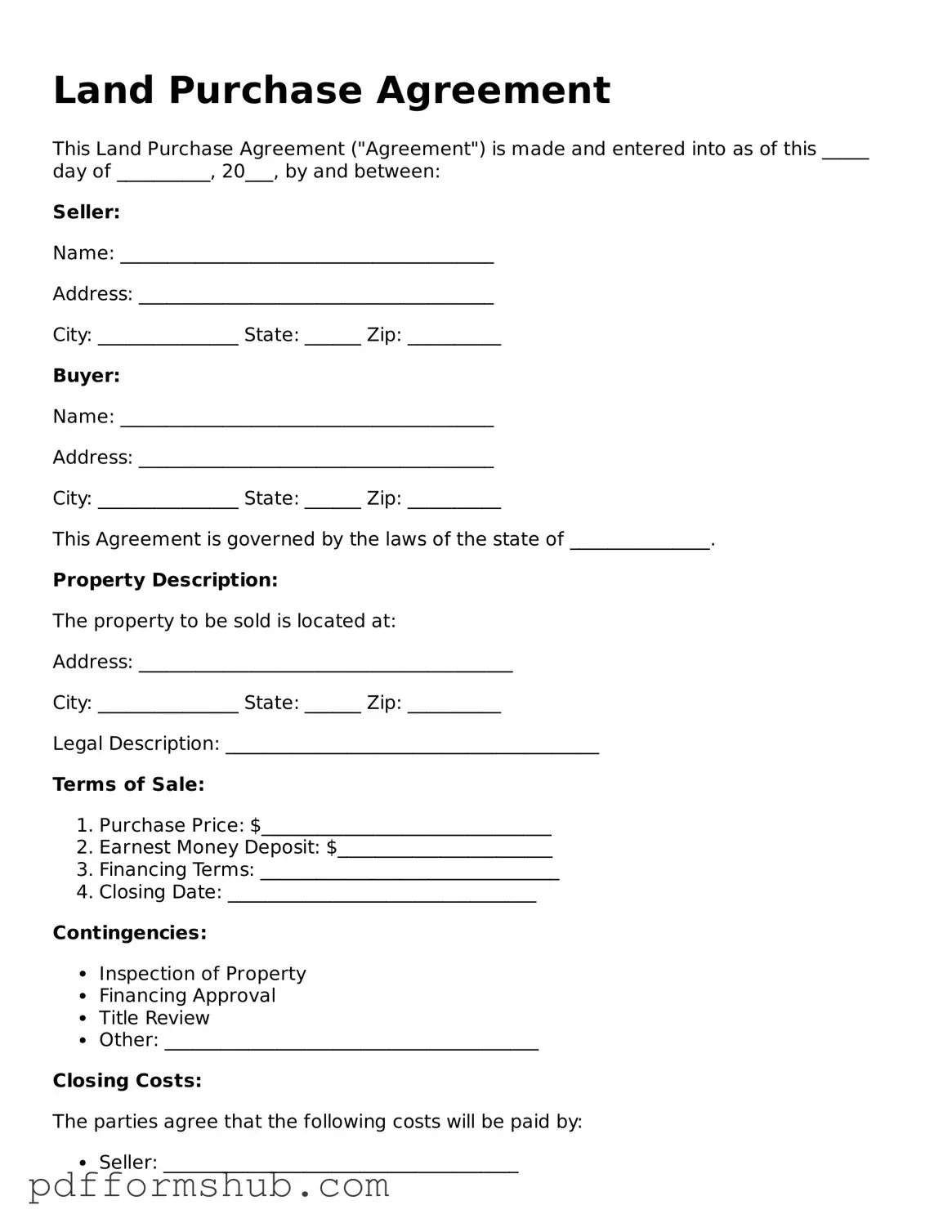Valid Land Purchase Agreement Form
A Land Purchase Agreement form is a legal document that outlines the terms and conditions of a real estate transaction between a buyer and a seller. This agreement serves to protect both parties by clearly defining the rights and obligations involved in the purchase of land. If you're ready to move forward, fill out the form by clicking the button below.
Customize Form

Valid Land Purchase Agreement Form
Customize Form

Customize Form
or
Free PDF Form
Short deadline? Complete this form now
Complete Land Purchase Agreement online without printing hassles.